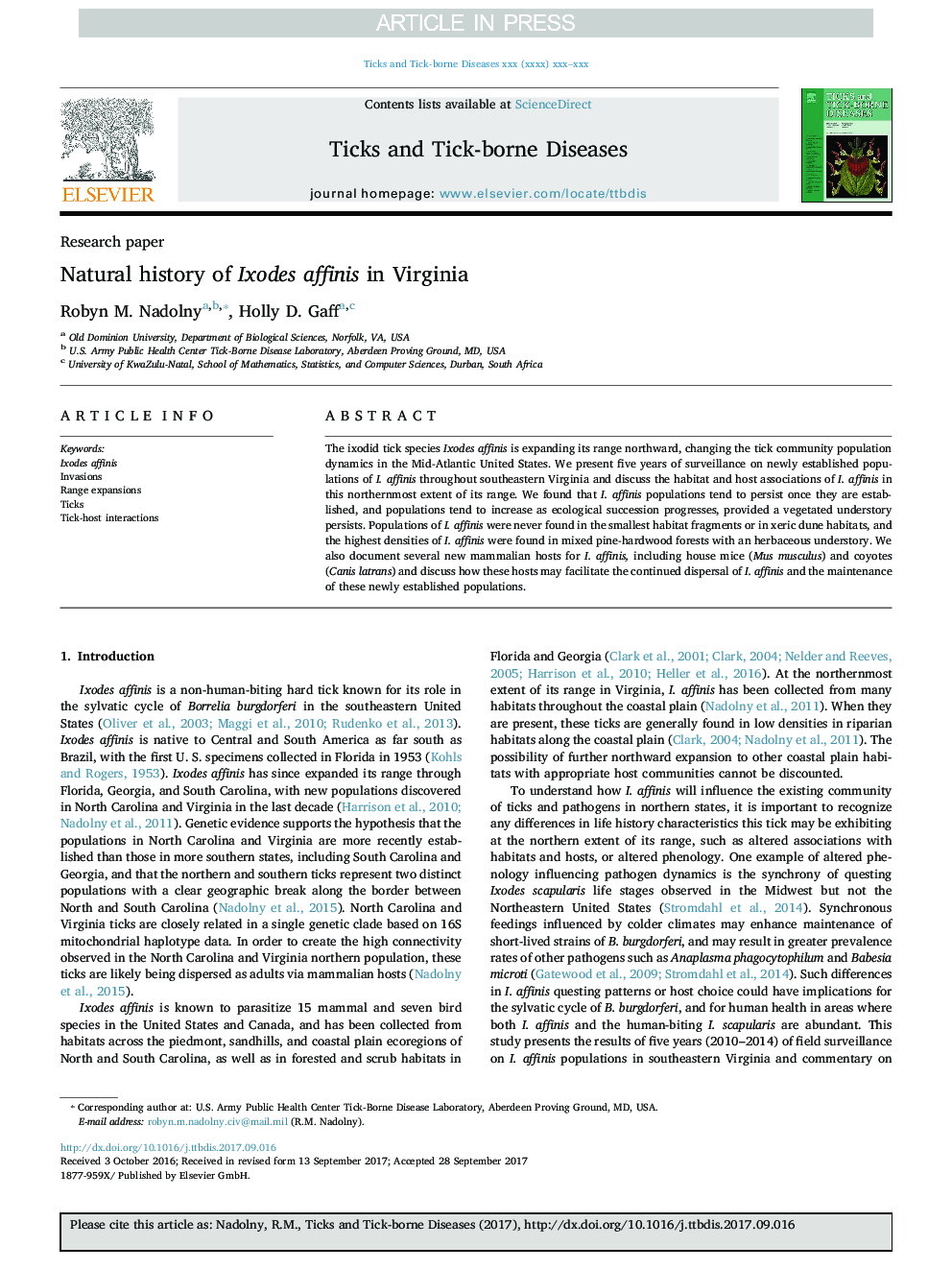| Article ID | Journal | Published Year | Pages | File Type |
|---|---|---|---|---|
| 8507489 | Ticks and Tick-borne Diseases | 2018 | 11 Pages |
Abstract
The ixodid tick species Ixodes affinis is expanding its range northward, changing the tick community population dynamics in the Mid-Atlantic United States. We present five years of surveillance on newly established populations of I. affinis throughout southeastern Virginia and discuss the habitat and host associations of I. affinis in this northernmost extent of its range. We found that I. affinis populations tend to persist once they are established, and populations tend to increase as ecological succession progresses, provided a vegetated understory persists. Populations of I. affinis were never found in the smallest habitat fragments or in xeric dune habitats, and the highest densities of I. affinis were found in mixed pine-hardwood forests with an herbaceous understory. We also document several new mammalian hosts for I. affinis, including house mice (Mus musculus) and coyotes (Canis latrans) and discuss how these hosts may facilitate the continued dispersal of I. affinis and the maintenance of these newly established populations.
Keywords
Related Topics
Life Sciences
Agricultural and Biological Sciences
Animal Science and Zoology
Authors
Robyn M. Nadolny, Holly D. Gaff,
